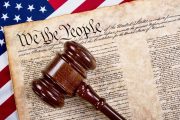
“I don’t want people talking on phones, having them up to their ear or texting while they’re driving.” Thus spake Transportation Secretary Ray LaHood in an October 5 interview with Bloomberg News. So let it be written; so let it be done.
The Transportation Department has begun researching driving distractions — “research that may lead [LaHood] to push for a ban” on all cell-phone use in cars, according to Bloomberg. LaHood doesn’t even care for hands-free conversations, nor is he particularly fond of in-vehicle conveniences such as Ford’s Sync, for entertainment, or General Motors’ OnStar, for information. LaHood is also, says Bloomberg, “absolutely opposed to” other things that consumers might enjoy, such as OnStar’s application to permit audio presentations of, and updates to, Facebook pages. Then again, LaHood just plain hates the idea that individuals outside the ruling class can ferry themselves around anyway, telling reporters at the National Press Club in 2009 that he wants “to coerce people out of their cars.” Making life less enjoyable for automobile drivers is one way to accomplish that.
Of course, the secretary doesn’t (yet) have the authority to mandate such a ban, which would have to be implemented at the state level, but he can certainly use the tools at his disposal to ensure state compliance. Bloomberg reports that his “campaign against texting and making calls while driving has led to restrictions in 30 states”; and the option to withhold federal highway funds from recalcitrant states, as was done to browbeat them into mandating seatbelt use and raising the drinking age to 21, is alive and well. LaHood, in fact, cited those initiatives as prototypes for his current campaign, saying, “The bottom line for me is to get where we’re at [sic] with seat belts and with drunk driving.”
Even if states don’t get with LaHood’s program, Bloomberg writes, his “escalating campaign may limit the growth of vehicle features such as Sync, being added by automakers to attract younger buyers. His push also may reduce calls made from vehicles and the revenue of mobile-phone companies such as Verizon Wireless and AT&T Inc.” But since when has Washington ever cared whether its policies were good for business?
LaHood claims that his campaign against distracted driving has already reduced traffic fatalities by six percent from 2008 to 2009. The Insurance Institute for Highway Safety begs to differ, citing a study that it conducted which found that accidents actually increased in three of the four states it studied that had banned texting while driving, perhaps because drivers began trying to hide their cell phones while texting.
Auto manufacturers, meanwhile, say they understand the problem of drivers’ taking their hands of the wheel or their eyes off the road to fiddle with electronic devices, and to that end they are introducing more voice-activated devices. Wade Newton, spokesman for the Alliance of Automobile Manufactures, also expressed concern that banning all wireless links in cars would stymie potentially beneficial “technologies that can automatically alert emergency responders if a car crashes and systems being developed that would alert drivers to changing weather or accidents ahead on the road,” Bloomberg says.
Still, LaHood presses onward, planning to issue federal guidelines next year stating “how much, if any, mobile communication by the driver is appropriate when a vehicle is in motion, said Ronald Medford, NHTSA’s deputy administrator,” according to Bloomberg. Never mind that this varies with respect to individual drivers, road and traffic conditions, and so on. Our benevolent bureaucrats in Washington know what is best for us in every situation.
The good news is that a blanket ban on cell-phone use in cars may be politically impossible, at least for now. Christopher King, a telecommunications analyst at Stifel Nicolaus & Co. in Baltimore, told Bloomberg, “It’s so ingrained at this point, I think banning that would be extremely difficult, bordering on folly. There would be no legitimate, public support for an outright ban.” This will not, however, prevent states, at the feds’ urging, from imposing tighter and tighter restrictions over time, with complete prohibition the ultimate goal.
Enjoy your freedom to make phone calls from your car while you can. You may shortly be disconnected by Uncle Sam.



